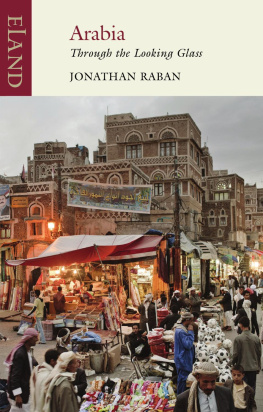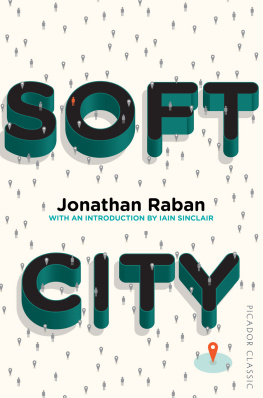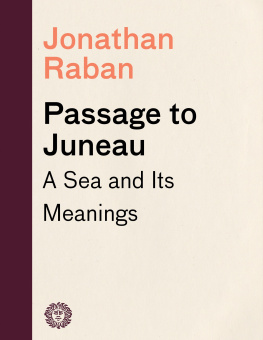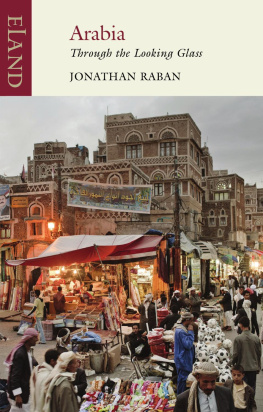You can just see a little peep of the Passage in Looking-glass House, if you leave the door of our drawing-room wide open: and its very like our passage as far as you can see, only you know it may be quite different on beyond
H E WAS WEARING A GRUBBY SHIFT and plastic sandals: hed pulled his head-dress close round his ears, and had a shiny jacket of the kind sold on market-stalls to keep off the dank cold of a London January. Its seams had split under the armpits. Outside Earls Court station, where touts and hustlers hang around in the entrance alert for likely victims, he looked half-frozen, frightened, and too far from home.
She was a business girl from Nevern Square; an urban savage, all lipstick and gristle, in a belted leather coat that gave her the air of a fat little stormtrooper lording it over an occupied territory.
Coming home with me, dear? She blocked his way, an unlit cigarette pouched in the corner of her scarlet mouth. He stared, half-raised his hands from the windy folds of his robe.
Come on, darling
Her worn professional patter, at once intimate and impersonal, streamed out of her, too fast for a bystander to follow. There was, though, an edge of avaricious excitement in her talk. She had cornered an Arab. The usual customers of the ladies of Nevern Square are small businessmen, up in London for a conference or a meeting with the sales manager; they put up for a couple of nights in one of the warren of second-rate hotels around Earls Court, and study the postcards in tobacconists windows Massage , Girl Student Seeks Employment , Miss Tress
She clearly knew about Arabs. His cheap sandals, the rents in his jacket, the week-old grime of his robe and head-dress, simply were not visible to her. Looking at him, all she saw was a figure of contemporary legend, a creature of rumour and newspaper headlines. Her head must have been awash with them. Arabs had bought the Dorchester; Arabs owned half of Holborn; Arabs tipped business girls with Cadillacs and solid gold watches; Arabs closed down the whole of Harrods for an afternoon, just so that their wives could shop in decent privacy. If they wanted to take a little perfume back to their palaces in the desert, Arabs purchased a couple of suitcases first, then instructed the assistant to load them to the brim with Dior, Givenchy, Paco Rabanne. When Arabs were caught shoplifting in Marks and Spencers, they were invariably found to have thousands of pounds in cash distributed in secret pockets in their robes.
She was close to his robe now, scenting money.
Its only round the corner
He was lost in the rapid babble of her spiel. He blinked at her, studying her mouth, like a rabbit transfixed by a stoat. Then a sudden hopeful means of escape occurred to him. He groped among the folds in his shift. Her eyes followed his hand, as if she was intent on the mechanics of a conjuring trick.
Eventually his hand reappeared. She bent towards it. He was holding a soiled little booklet of limp matches. There were just three left. He tore one off and held it to the strip of emery-paper on the bottom of the packet.
You like ? he said.
Oh, sod off, for Christs sake she said, dislodging herself into the current of the crowd. He was left holding the single unstruck match in the air, in a gesture of bewildered benediction.
Earls Court is usually a reliable, if seedy, barometer of the changes in social and political pressure in the world beyond. When anything really important happens on some outcrop of the globe with an unpronounceable name, it will show up a few months later on the Earls Court Road. The street swarms with Europes latest arrivals: refugees, hopefuls, the new rich, the new poor, people in transit between an old life and a problematic future. Cambodian evacuees, Asians in flight from tyrannical black masters, newly-sturdy Japanese; after the murder of Allende, there were the Chileans; as the pound sank against the dollar, the crowd grew swollen with American teenagers humping backpacks, and when the Arabs raised the price of oil in 1973, it was on the Earls Court Road that one first saw the strange, beak-shaped foil masks of Gulf women and the improbably white dishdashas of husbands who walked exactly four paces ahead of their wives.
It was the masks I noticed first. They made the women look like hooded falcons, and they struck me not as symbols of Islamic female modesty so much as objects of downright menace. It happened in a summer; one day Arabs were a remote people who were either camping out in tents with camels and providing fodder for adventurous photographers, or a brutish horde threatening the sovereignty of the state of Israel; the next, they were neighbours neighbours whose oddity far outclassed even that of the professional vagrants and wild men who find a natural asylum in Earls Court. Round every corner, one came upon the black-and-gold glint of those masks, and the black silk sheaths that encased the women as if they were corpses risen in their shrouds. The men were hardly less peculiar. Dressed for the desert, on the streets of west London they looked like a crew of escaped film extras, their head-dresses aswirl on the wind of exhaust fumes.
These people were not the oil sheikhs of the newspaper stories which had begun to break round the heads of Arabs in London. They ate from takeaways. They set up little transient stalls of junk in the street. They kept up a kind of aimless progress around Earls Court Road, Gloucester Road, Cromwell Road, Queens Gate and the Boltons, as if they were in a state of prolonged clinical shock.
They were not paupers, either. They hung in clusters round the hi-fi and photographic shops. Their Japanese cameras dripped with intricate accessories. They carried portable stereo cassette-recorders, and kept themselves company with a grossly amplified caterwauling which sounded repetitive, maudlin and unearthly. Sometimes I caught fragments of their language an impenetrable labyrinth of consonants which sounded more musical to my ear than the noise which came out of their tape-recorders. As neighbours, they were uniquely inaccessible: it was much like having a family of Martians moving in next door.
My new neighbours were, I supposed, the family servants and hangers-on of the people who were getting into the papers in such tiresome quantity. There were, I read, whole collegefuls of Saudi students terrorising quiet villages in the Cotswolds with their Lamborghinis and 1000cc Harley Davidsons. There were sheikhs in helicopters who landed on country-house lawns in the middle of lunch and evicted Englands landed gentry with their chequebooks. Someone pointed out a vast stretch of the Kentish Weald through my car window and announced that Arab money had purchased every last sod within sight of our native soil.
There were the jokes: barbecued goat at the Hilton; a muezzin calling the faithful to prayer from the roof of the Dorchester; the camel that got a parking ticket outside the Playboy Club It was at least a change from the staple diet of jeers against the Irish and the Pakistanis; and The Arabs were so evidently rich, so patently fair game, that they somehow seemed to be beyond the scope of the Race Relations Act. British xenophobia which had lately been somewhat bridled under threat of prosecution relieved itself in a great breaking of racist wind in the faces of the Arabs.
Whatever their effect on the economy of the West, the sheikhs and their doings were certainly adding to the general gaiety of the nation. They began to form a kind of gilded frieze populated by brilliant cut-out figures engaged in a wild dance for our snobbish entertainment. No one I ever met actually knew a sheikh, which was convenient since it allowed everyone the licence of gothic fiction when it came to talking about sheikhs. The amount of money that they splashed around was, everyone delightedly agreed, simply appalling. And their taste was, everyone said, utterly deplorable.









